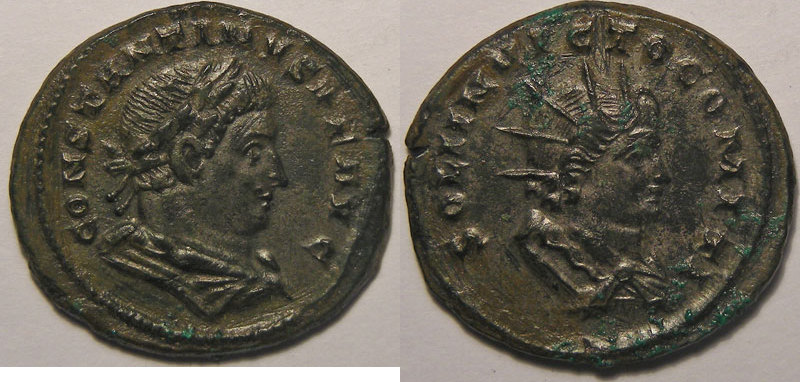If you want to argue that Pascha (which is the feast called Easter in English) has no connection to the Jewish Passover you would need to explain the particularities of what the earliest sources say.
If you want to argue that Pascha (which is the feast called Easter in English) has no connection to the Jewish Passover you would need to explain the particularities of what the earliest sources say. Second century Christians such as Melito Mention the feast, we have an entire homily by him which compares the Old Passover of the Exodus to the New Passover (pascha) in Christ. The Shadow and the fulfillment. Melito himself was a Quatrodeciman which meant he celebrated it on the 14th of Nissan the resurrection of the Lord. We also have Eusebius' account of Ireneaus and the Bishop of Rome, how the feast was celebrated differently in the East and West and this was cause for concern for the Bishop of Rome who eventually tolerated the Eastern Church's practice.
What you need to explain is this, if Pascha has no connection to the Jewish Passover, why did Early Christians like Melito deliberately compare it to the Old Passover of the Jews? Why did the early Christians call it Pascha and not Easter (the earliest mention of the word Easter is from Bede as has been pointed out several times). Why are there no Pagan analogues with their own feast which changed due to the passage of the moon?
To me the answer is obvious. Early Christians refocused the Passover practice they had received to be around and in acknowledgement of Christ and the New Covenant he gave. To suggest they borrowed from Paganism this practice is to actually ignore the evidence and simply be petulant.
Devarim 13:1 CJB
Everything I command you that you shall be careful to do it. You shall neither add to it, nor subtract from it.
Leviticus 23
Leviticus 23World English Bible (WEB)
4 “‘These are the set feasts of Yahweh, even holy convocations, which you shall proclaim in their appointed season. 5 In the first month, on the fourteenth day of the month in the evening, is Yahweh’s Passover. 6 On the fifteenth day of the same month is the feast of unleavened bread to Yahweh. Seven days you shall eat unleavened bread. 7 In the first day you shall have a holy convocation. You shall do no regular work. 8 But you shall offer an offering made by fire to Yahweh seven days. In the seventh day is a holy convocation: you shall do no regular work.’”
Eusebius' Life of Constantine, Book 3 chapter 18 records Constantine the Great as writing:
"... it appeared an unworthy thing that in the celebration of this most holy feast we should follow the practice of the Jews, who have impiously defiled their hands with enormous sin, and are, therefore, deservedly afflicted with blindness of soul. ... Let us then have nothing in common with the detestable Jewish crowd; for we have received from our Saviour a different way."
Theodoret’s Ecclesiastical History 1.9 records The Epistle of the Emperor Constantine, concerning the matters transacted at the Council, addressed to those Bishops who were not present:
“It was, in the first place, declared improper to follow the custom of the Jews in the celebration of this holy festival, because, their hands having been stained with crime, the minds of these wretched men are necessarily blinded. … Let us, then, have nothing in common with the Jews, who are our adversaries. … avoiding all contact with that evil way. … who, after having compassed the death of the Lord, being out of their minds, are guided not by sound reason, but by an unrestrained passion, wherever their innate madness carries them. … a people so utterly depraved. … Therefore, this irregularity must be corrected, in order that we may no more have any thing in common with those parricides and the murderers of our Lord. … no single point in common with the perjury of the Jews.”
Philip Schaff's History of the Christian Church, volume 3, section 79, The Time of the Easter Festival states:
"The feast of the resurrection was thenceforth required to be celebrated everywhere on a Sunday, and never on the day of the Jewish passover, but always after the fourteenth of Nisan, on the
Sunday after the first vernal full moon. The leading motive for this regulation was opposition to Judaism, which had dishonored the passover by the crucifixion of the Lord. ... At Nicaea, therefore, the Roman and Alexandrian usage with respect to Easter triumphed, and the Judaizing practice of the
Quartodecimanians, who always celebrated Passover on the fourteenth of Nisan, became thenceforth a heresy. Yet that practice continued in many parts of the East, and in the time of Epiphanius, about a.d. 400, there were many, Quartodecimanians, who, as he says, were orthodox, indeed, in doctrine, but in ritual were addicted to Jewish fables, and built upon the principle: “Cursed is every one who does not keep his passover on the fourteenth of Nisan.”
YHWH's word is a fable?
Deuteronomy 27:26
"Cursed is the man who does not uphold the words of this law by carrying
them out."
Daniel 7:25
Holman Christian Standard Bible
He will speak words against the Most High and oppress the holy ones of the Most High. He will intend to change religious festivals and laws, and the holy ones will be handed over to him for a time, times, and half a time.

